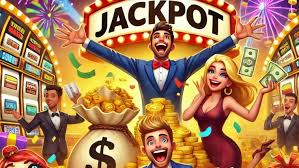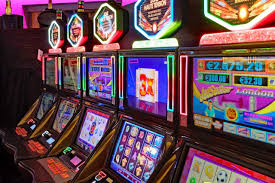The Rise of Virtual Goods in Online Games
Virtual goods, once considered simply in-game assets with no tangible value outside of their respective games, have evolved into significant sources of real-world income. The rise of blockchain technology has largely driven this transformation, enabling the ownership and trade of digital assets as Non-Fungible Tokens (NFTs). In games like Axie Infinity, Decentraland, and The Sandbox, players can buy, sell, and trade in-game assets—such as characters, virtual land, and skins—in the form of NFTs. These digital assets can hold significant value, with some rare items or properties selling for tens of thousands of dollars. As these virtual goods gain monetary value, gamers are increasingly finding ways to profit from the time and effort they invest in these virtual worlds, turning what was once just a hobby into a full-time income stream.
NFTs: Unlocking Value in Virtual Goods
Non-Fungible Tokens (NFTs) have been central to the monetization of virtual goods.
NFTs are unique digital tokens stored on a blockchain that prove ownership of digital assets, allowing gamers to securely trade, sell, or auction their virtual items. In games like Axie Infinity, players can breed, battle, and level up Axies—digital creatures that are also NFTs—and sell them to other players for real money. Similarly, virtual land in games like Decentraland or The Sandbox can be bought and sold as NFTs, often appreciating in value over time. This concept of tokenizing virtual goods has opened up new revenue opportunities for gamers, allowing them to earn income by trading rare or valuable in-game items on digital marketplaces. As the popularity of NFTs continues to grow, the value of virtual goods as tradable assets is only expected to rise.
Virtual Real Estate as a Profitable Asset
One of the most exciting developments in the virtual goods market is the growing trend of virtual real estate, where players can buy, sell, and develop virtual land within blockchain-based worlds. In platforms like The Sandbox and Decentraland, virtual land parcels are sold as NFTs and can be developed into stores, galleries, or entertainment spaces. Just like physical real estate, the value of virtual land is determined by location, demand, and development potential. Savvy gamers have been able to purchase land in prime virtual locations—such as near major landmarks or in high-traffic areas—and develop them into income-generating properties. Virtual real estate deals are becoming highly profitable. With some buyers selling plots of virtual land for hundreds of thousands of dollars. As the metaverse continues to grow, the financial potential for virtual real estate remains vast. Making it an increasingly popular way for gamers to earn substantial income.
Creating and Selling Digital Goods for Profit
In addition to trading in-game assets and virtual real estate, many gamers are also monetizing their creativity by designing and selling digital goods. This includes everything from virtual clothing and accessories for avatars to custom-designed virtual environments. In platforms like Second Life or Roblox, players can design and sell their creations, often turning their artistic skills into a full-time business. Some virtual goods creators earn by producing custom skins, 3D models, or interactive experiences that other players or developers purchase for use in their own games. These digital goods can be sold within the game or through external NFT marketplaces. As more players engage in the creation and trading of virtual assets, the digital goods economy within gaming platforms continues to expand, providing lucrative opportunities for entrepreneurial players.
The Future of Virtual Goods as an Income Source
As the gaming and virtual worlds evolve, the future of virtual goods as a source of real-world income looks exceptionally promising. The continued rise of the metaverse—the interconnected virtual universe where players can socialize, work, and play—suggests that virtual goods will become an even more integral part of daily life. The development of blockchain technology and the increasing mainstream acceptance of cryptocurrencies will only enhance the liquidity and value of virtual goods. Players will be able to trade digital assets across different platforms, and the economy around virtual goods will continue to mature. As developers create new games and virtual worlds every day, the potential for gamers to earn a living through the creation, trading, and investment in virtual goods is growing.
In conclusion, virtual goods have evolved from simple in-game items into valuable assets that people can monetize in the real world. The rise of blockchain technology and NFTs has allowed gamers to trade, sell, and profit from their virtual possessions in ways that were once unimaginable. From trading virtual land to creating digital goods, gamers are turning their passion into profit, building businesses within virtual worlds, and capitalizing on the growing value of virtual assets. As the digital economy continues to evolve, the potential for earning income through virtual goods will only increase, offering gamers around the world new opportunities for financial success.
Play and win real money at the best online casino – Join now!





